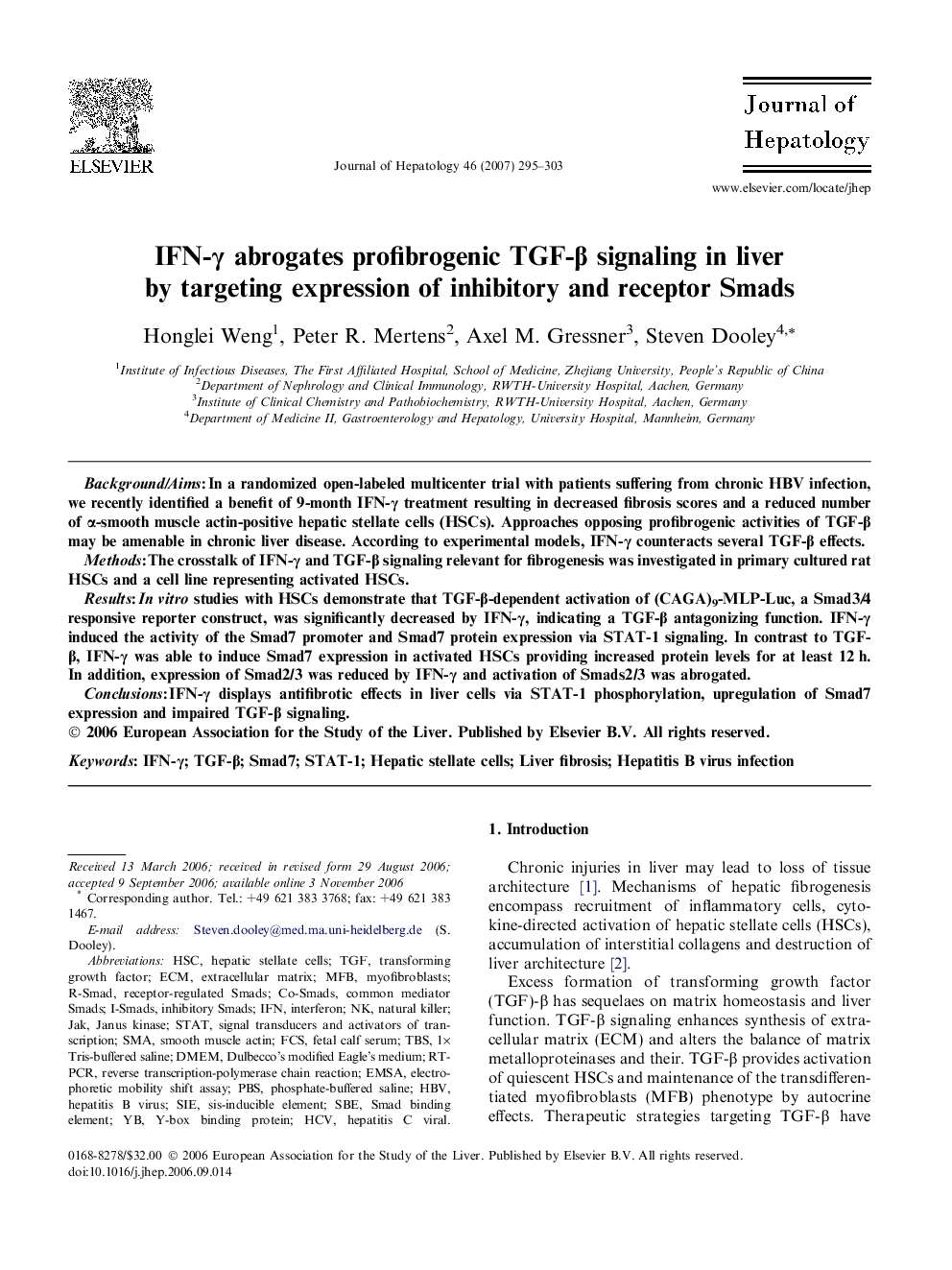| Article ID | Journal | Published Year | Pages | File Type |
|---|---|---|---|---|
| 3315561 | Journal of Hepatology | 2007 | 9 Pages |
Background/AimsIn a randomized open-labeled multicenter trial with patients suffering from chronic HBV infection, we recently identified a benefit of 9-month IFN-γ treatment resulting in decreased fibrosis scores and a reduced number of α-smooth muscle actin-positive hepatic stellate cells (HSCs). Approaches opposing profibrogenic activities of TGF-β may be amenable in chronic liver disease. According to experimental models, IFN-γ counteracts several TGF-β effects.MethodsThe crosstalk of IFN-γ and TGF-β signaling relevant for fibrogenesis was investigated in primary cultured rat HSCs and a cell line representing activated HSCs.ResultsIn vitro studies with HSCs demonstrate that TGF-β-dependent activation of (CAGA)9-MLP-Luc, a Smad3/4 responsive reporter construct, was significantly decreased by IFN-γ, indicating a TGF-β antagonizing function. IFN-γ induced the activity of the Smad7 promoter and Smad7 protein expression via STAT-1 signaling. In contrast to TGF-β, IFN-γ was able to induce Smad7 expression in activated HSCs providing increased protein levels for at least 12 h. In addition, expression of Smad2/3 was reduced by IFN-γ and activation of Smads2/3 was abrogated.ConclusionsIFN-γ displays antifibrotic effects in liver cells via STAT-1 phosphorylation, upregulation of Smad7 expression and impaired TGF-β signaling.
